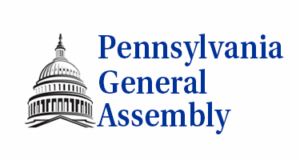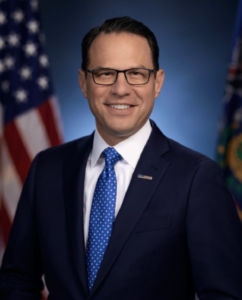PA Health Policy Update for February 6
The following is an update of selected state health policy developments in Pennsylvania from February 2 – February 6 (Some of the language used below is taken directly from state documents).
Budget Update
Governor Shapiro issued his fourth budget address before a joint session of the House and Senate this past Tuesday, sharing his priorities for the 2026-2027 Fiscal Year Budget. In total, the FY 2026-2027 budget proposes spending $53.26 billion, $2.7 billion more than the current fiscal year. The proposed budget, which exceeds anticipated revenues by $4.6 billion, represents a $2.72 million, or a 5.4 percent, increase over the prior fiscal year. The budget is balanced primarily by utilizing $4.6 billion in Rainy Day Fund reserves, leaving approximately $3 billion in the fund’s balance. This budget does not include a broad-based tax increase but it once again proposes legalization and taxation of skill games and recreational adult use cannabis and raising the minimum wage to $15 per hour.
 General Assembly
General Assembly
The House and Senate both were in session this week but will break from session until March 23rd for the House and March 16th for the Senate. Both the House and Senate Appropriations Committees will begin their hearings to examine the Governor’s Budget Proposal. Key hearings are as follows:
- Insurance Department: House – Feb. 24th at 10am
- Department of Health & Department of Drug & Alcohol Programs: House – Feb. 24th at 1pm
- Department of Human Services: Senate – Feb. 25th at 10am; House – Mar. 4th at 10am
- Department of Aging: House – Mar. 10th at 1pm
- Governor’s Budget Office: Senate – Mar. 4th at 1pm; House – Mar. 12th at 10am
Dates for all five special elections to fill vacancies in the House have now been scheduled. House District 22 in Lehigh County & House District 42 in Allegheny County are scheduled for February 24th. Elections for House District 79 in Blair County and House District 193 in Adams County will be held on March 17th. Lastly, the special election for the vacancy in York County’s House District 196 will be on May 19th to coincide with this year’s primary election.
The following are healthcare-related bills or cosponsor memos released by legislators this past week:
- Rep. Bridget Kosierowski and Rep. Jim Struzzi released a co-sponsor memo for legislation directing the Legislative Budget & Finance Committee (LBFC) to study the financial and administrative impacts of compliance with hospital regulations, and recommend action on any duplicative or outdated regulations currently in effect.
- Rep. Joe Webster issued a co-sponsor memo soliciting support for legislation banning facility fees for outpatient services by healthcare providers and creating “site-neutral” payment caps.
- In support of Gov. Shapiro’s Innovate PA 2.0 budget priority, Rep. Tim Briggs circulated a co-sponsor memo in the House for legislation to implement the program and Chairman Vince Hughes released a corresponding version in the Senate.
- Sen. Michele Brooks has also released a co-sponsor memo directing the Legislative Budget & Finance Committee (LBFC) to study the burden of regulations on healthcare facilities and providers in PA.
- Sen. Tracy Pennycuick and Sen. Frank Farry issued a co-sponsor memo for legislation to establish the Biobonds Innovation Fund, modeled after the federal “Loans for Biomedical Research Act.”
- Reps. Emily Kinkead, Andrew Kuzma, Tarik Khan, Liz Hanbidge, and Darisha Parker have issued a co-sponsor memo for legislation prohibiting co-pay accumulator policies.
Department of Human Services
Check out DHS’ Human Services Helpers, on the Substack platform – a media platform for video, podcasts, etc. – that will cover updates on DHS programs, news from the agency, and how organizations and partners can help their communities.
DHS issued Medical Assistance prior authorization guidance for the following:
- Tracheostomy Speaking Valves and Voice Prosthetic Devices
- Lower Extremity Orthoses
- Breast & Nipple Prosthesis
DHS’ Office of Mental Health & Substance Abuse Services (OMHSAS) issued an MA Fee Schedule Bulletin announcing the addition of Psychiatric Rehabilitation Services to the MA Fee Schedule.
Independent Regulatory Review Commission
Independent Regulatory Review Commission issued comments to the DHS’ proposed Mental Health Procedures Regulations.
Stakeholder Meetings
The Patient Safety Authority will hold a public board meeting on Tues. Feb. 10th at 1pm.
Federal Update
Click here for a review of this week’s federal activities.






